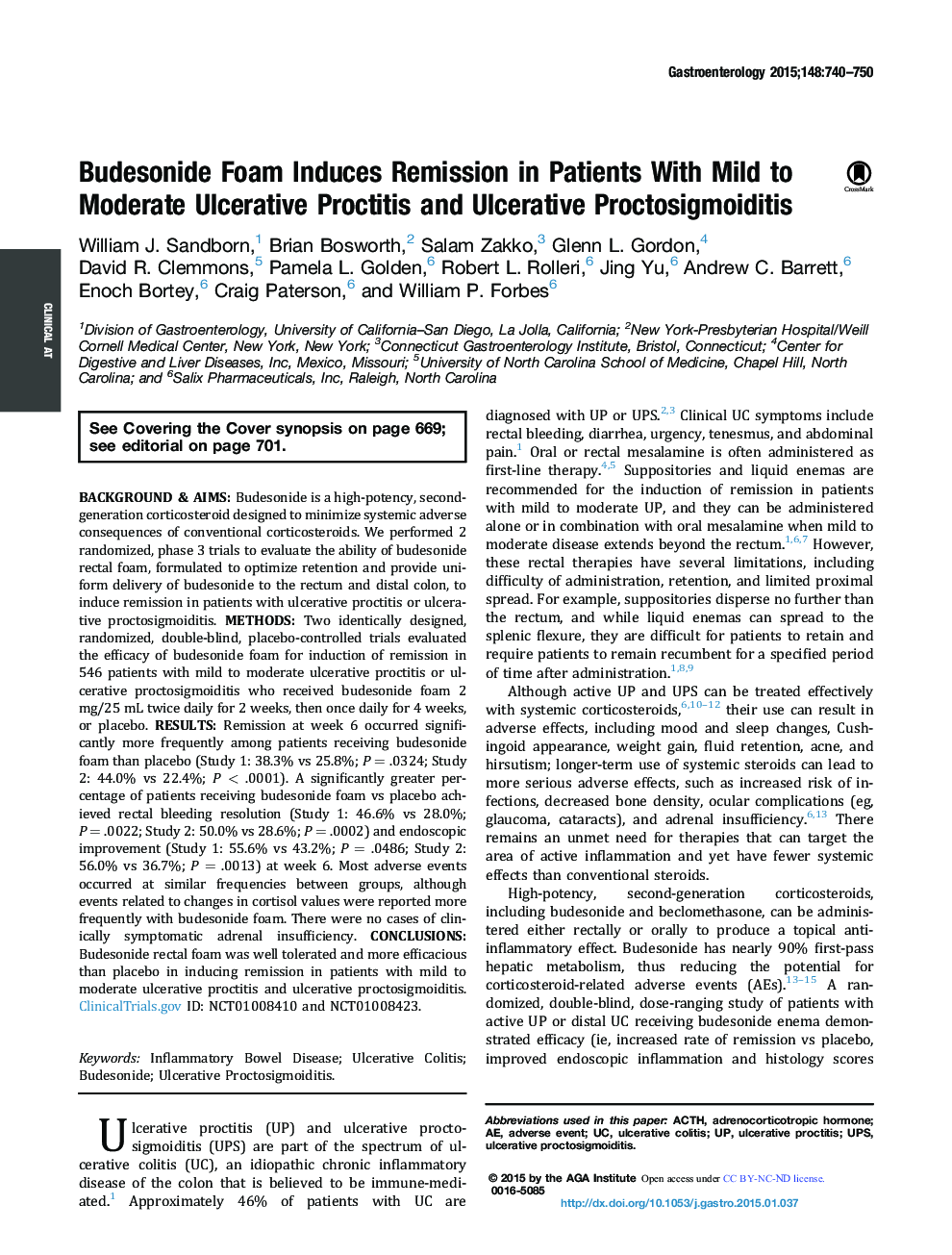| Article ID | Journal | Published Year | Pages | File Type |
|---|---|---|---|---|
| 6093470 | Gastroenterology | 2015 | 13 Pages |
Background & AimsBudesonide is a high-potency, second-generation corticosteroid designed to minimize systemic adverse consequences of conventional corticosteroids. We performed 2 randomized, phase 3 trials to evaluate the ability of budesonide rectal foam, formulated to optimize retention and provide uniform delivery of budesonide to the rectum and distal colon, to induce remission in patients with ulcerative proctitis or ulcerative proctosigmoiditis.MethodsTwo identically designed, randomized, double-blind, placebo-controlled trials evaluated the efficacy of budesonide foam for induction of remission in 546 patients with mild to moderate ulcerative proctitis or ulcerative proctosigmoiditis who received budesonide foam 2 mg/25 mL twice daily for 2 weeks, then once daily for 4 weeks, or placebo.ResultsRemission at week 6 occurred significantly more frequently among patients receiving budesonide foam than placebo (Study 1: 38.3% vs 25.8%; P = .0324; Study 2: 44.0% vs 22.4%; P < .0001). A significantly greater percentage of patients receiving budesonide foam vs placebo achieved rectal bleeding resolution (Study 1: 46.6% vs 28.0%; P = .0022; Study 2: 50.0% vs 28.6%; P = .0002) and endoscopic improvement (Study 1: 55.6% vs 43.2%; P = .0486; Study 2: 56.0% vs 36.7%; P = .0013) at week 6. Most adverse events occurred at similar frequencies between groups, although events related to changes in cortisol values were reported more frequently with budesonide foam. There were no cases of clinically symptomatic adrenal insufficiency.ConclusionsBudesonide rectal foam was well tolerated and more efficacious than placebo in inducing remission in patients with mild to moderate ulcerative proctitis and ulcerative proctosigmoiditis. ClinicalTrials.gov ID: NCT01008410 and NCT01008423.
